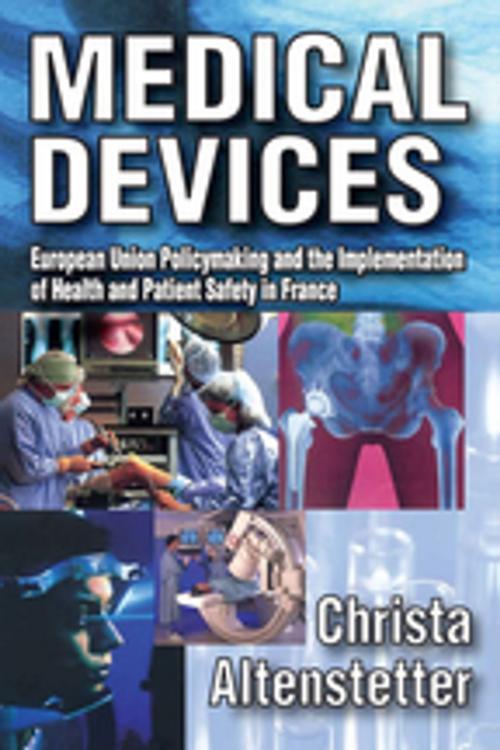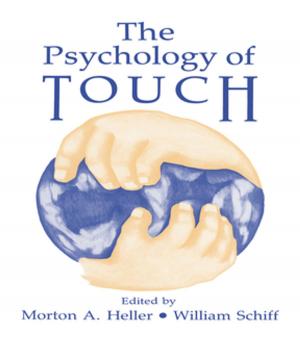Medical Devices
European Union Policymaking and the Implementation of Health and Patient Safety in France
Nonfiction, Health & Well Being, Medical, Patient Care, Health Care Delivery, Social & Cultural Studies, Social Science, Sociology| Author: | Christa Altenstetter | ISBN: | 9781351506281 |
| Publisher: | Taylor and Francis | Publication: | September 8, 2017 |
| Imprint: | Routledge | Language: | English |
| Author: | Christa Altenstetter |
| ISBN: | 9781351506281 |
| Publisher: | Taylor and Francis |
| Publication: | September 8, 2017 |
| Imprint: | Routledge |
| Language: | English |
Medical devices are the bread and butter from which health care and clinical research are derived. Such devices are used for patient care, genetic testing, clinical trials, and experimental clinical investigations. Without medical devices, there is no clinical research or patient care. Without life-adjusting devices, there are no medical procedures or surgery. Without life-saving and life-maintaining devices, there is no improvement in well-being and quality of life. Without innovative medical devices and experimentation, there can be no medical progress or patient safety. Medical devices and medical technology are used to create or support many different products and medical-surgical procedures. This volume on the regulation of medical devices in the European Union, with a focus on France, tackles a topic of interdisciplinary interest and significance for policymakers in countries around the globe. The EU regulatory regime is one of three global regional regimes, and medical products manufactured in EU countries are sold worldwide. As countries confront an aging population on a global scale, with associated increases in chronic diseases, physical handicaps, and multi-morbidity, there will inevitably be an increase in the demand for health services and, concomitantly, the use of medical devices in medical and surgical procedures. This will be the case regardless of whether services are delivered in hospitals, doctors' offices, or at home. The associated risks of a particular device will be the same whatever the country of origin for the device, or where the need occurs. Revolutionary medical advances increase diagnostic capabilities, but they increase the potential of harm and risks to patients. Medical technologies and devices are used ethically most of the time; yet they have the potential for unethical use when scientific medicine is elevated over human life and death. Assumptions that are taken for granted can be dangerous to a patient's health. That is why our understanding of appropriate and effective regulation of medical devices is significant to all people on all continents.
Medical devices are the bread and butter from which health care and clinical research are derived. Such devices are used for patient care, genetic testing, clinical trials, and experimental clinical investigations. Without medical devices, there is no clinical research or patient care. Without life-adjusting devices, there are no medical procedures or surgery. Without life-saving and life-maintaining devices, there is no improvement in well-being and quality of life. Without innovative medical devices and experimentation, there can be no medical progress or patient safety. Medical devices and medical technology are used to create or support many different products and medical-surgical procedures. This volume on the regulation of medical devices in the European Union, with a focus on France, tackles a topic of interdisciplinary interest and significance for policymakers in countries around the globe. The EU regulatory regime is one of three global regional regimes, and medical products manufactured in EU countries are sold worldwide. As countries confront an aging population on a global scale, with associated increases in chronic diseases, physical handicaps, and multi-morbidity, there will inevitably be an increase in the demand for health services and, concomitantly, the use of medical devices in medical and surgical procedures. This will be the case regardless of whether services are delivered in hospitals, doctors' offices, or at home. The associated risks of a particular device will be the same whatever the country of origin for the device, or where the need occurs. Revolutionary medical advances increase diagnostic capabilities, but they increase the potential of harm and risks to patients. Medical technologies and devices are used ethically most of the time; yet they have the potential for unethical use when scientific medicine is elevated over human life and death. Assumptions that are taken for granted can be dangerous to a patient's health. That is why our understanding of appropriate and effective regulation of medical devices is significant to all people on all continents.















